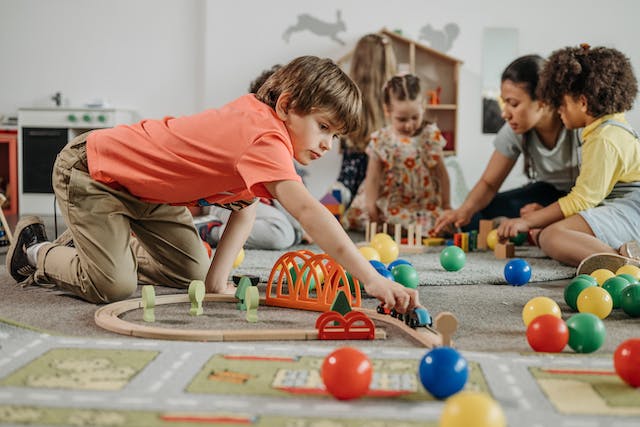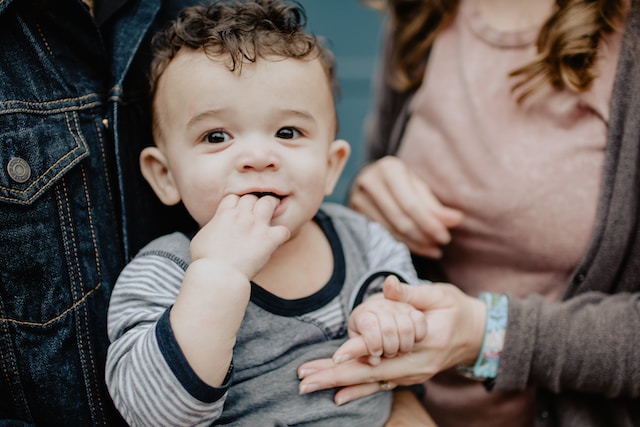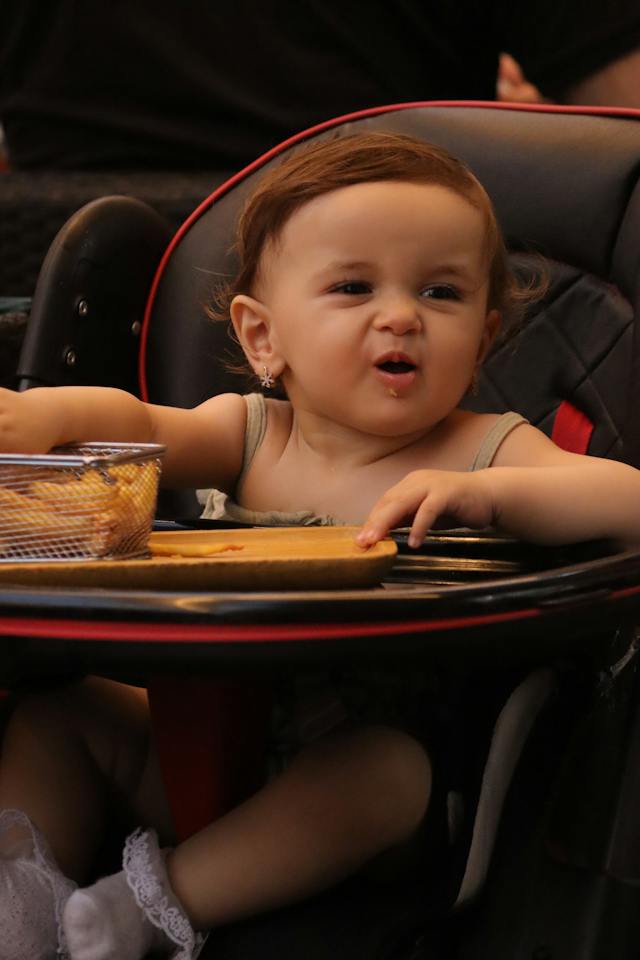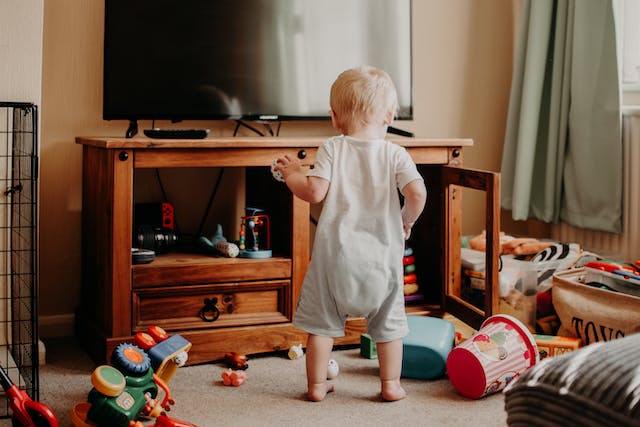To share or not to share: learning social skills

Sharing is a very challenging concept for young children. Obviously, sharing is a social skill. Sharing, however, also requires complex emotional and cognitive skills that are not fully developed in young children. So, while you want your child to “do the right thing”, your child’s sharing ability is still very much “under construction”.
You must own it before you can share it. Imagine how difficult this is when your child is in the No/Mine Stage. The Mine Stage is about learning the ins and outs of ownership. Any reasonable adult might be baffled, and even a little nervous, as to why “ownership” is such a forceful presence in early childhood development.
Your child’s struggles over “ownership” coincide with the development of identity. Your child spent the eighteen months in the loving bubble of parent-child attachment. She will spend the rest of the preschool years in the push and pull of becoming a separate person. Labeling the world “mine” is the first step. Give your child plenty of opportunities to collect and carry things. Let your child feel the power of “mine” before asking her to let it go.
Practice sharing things that have multiple pieces before trying to share a single object. It’s much easier to share cookies or blocks than it is for your child to learn to take turns, or worse, to relinquish possession for an indeterminate amount of time. Build a habit of sharing through short, positive experiences to show your child that sharing is fun and nonthreatening.
Prepare for play dates by choosing activities that have enough toys for everyone. Your child will not be able to share his favorite truck but he may like to play trucks if you have six fun trucks and some new tunnels to add to the game. If there are six trucks and the children are fighting to have only the truck that the other child is holding, start with a simple redirection: “Hey guys, let’s try making a road for your trucks.” or “Who has the loudest truck horn – honk, honk?” Keep in mind some struggles are not about the toys at all.
Guide and lead. The conflict is about emotions, power, trust and self control. Describe the sharing conflict in the simplest possible terms: “Looks like you both want the same toy.” Then, state the problem: “hmmm, I wonder what we should do?” Sometimes just acknowledging the emotions diffuses the power play. Your child might feel better just being heard – “yes, I want it NOW. And I don’t want to wait. And she’s not my friend any more! Okay, let’s play.”
Other times your child needs a role model. You can then stay nearby to help your child wait for a turn or insure that his turn will in fact come. Timing turns works because it allows the child with ownership to prepare to relinquish control and it reassures the waiting child that the wait will not be indefinite. Only after repeated trials will a child learn that turn-taking is in fact safe and fair.
Give skills time to develop. You want your child to learn to be a compassionate person. Keep a slow ‘n steady course towards the goal. Your child is learning how to treat others. She has choices how to act and those choices bring about different reactions. Your child is learning how to exercise self control. His way is not the only way. People are not objects – they have feelings too. Your child is also learning that lengths of time are predictable and she can trust that her needs will be met in the future. No wonder learning to share takes time!
Sometimes it’s more important not to share. Even adults do not share everything – not husbands, not toothbrushes. Teach your child to be thoughtful of others while still honoring his own needs. It’s okay to put special toys away before friends arrive. It’s okay to not want someone to touch your blanket when you’re sad. You’ll be surprised though. Once your child “owns” who he is, he won’t need to hold so tight to the objects to prove it.





Follow Us
Join the conversion. Make sure to follow us on our social platforms for the latest content and FamilyTime news.